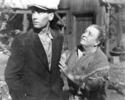The first lesson to be learned from this earlier era is that a large middle class requires an economy that generates a broad base of jobs paying middle-class wages. The New Dealers were not opposed to "rigging" the labor and financial markets to achieve this result. New Deal progressives believed the economy should exist to serve society, not the other way around, and that the government has a duty to shape the economy to meet middle-class aspirations. read more »
Public Investment, Decentralization and Other Economic Lessons from the New Deal
New Deal Investments Created Enduring, Livable Communities
Growing appeals for more public infrastructure investment make two critical claims: that this would help stimulate the economy in the short run while making our country more productive over the long run. Unlike tax rebates and other short-term stimulus, a major infrastructure investment program can have powerful effects on community life beyond boosting spending at the local Wal-Mart. read more »
The New Deal & the Legacy of Public Works
Almost completely ignored in the press this year has been the 75th anniversary of the New Deal. Social Security, public housing, school lunches, deposit insurance, labor relations standards and banking regulations are among its many enduring legacies. On this anniversary, it is worth looking at the public works programs that constructed roads and buildings that still exist in every county in America. read more »
Progressives, New Dealers, and the Politics of Landscape
One of the greatest ironies of our time is the fact that today’s leading progressives tend to despise the very decentralized landscape that an earlier generation of New Deal liberals created. read more »
The Great Exception: San Francisco’s SoMa Neighborhood
In recent months, one has not been able to open a newspaper without being reminded of the havoc that is being wreaked on the U.S. economy. The subprime mortgage debacle coupled with skyrocketing energy prices have caused many middle class Americans to lose confidence in taking out home loans and putting a screeching halt to consumer spending. read more »
New York’s Next Fiscal Crisis
Mayor Bloomberg needs to prepare the city for the crash of the Wall Street gravy train. read more »
- Login to post comments
Thoughts on the Future of Seattle: A Vision of 2040 for Pugetopolis
I have been attacked as a defender of ‘sprawl’ although I consider myself a man of the left, with a political-economy philosophy that is ‘social democratic – far to the left of the contemporary Democratic party. I view global warming as very serious, but consider continuing global warfare over resources, land and religion, and increasing national and global economic and political inequality as even more critical. read more »
Questioning Conventional Wisdom: Should Poor Folks Stay Put?
There is reason to think again about the now-current idea of dispersing the population of poor folks in the Skid Row district of downtown Los Angeles and similar precincts in other cities across the U.S.
There’s cause to pause over notions such as mixing “affordable housing” that’s priced in the range of working-class or poor folks alongside spiffy market-rate units. read more »
The Entrenchment of Urban Poverty
How high urban housing costs and income inequality have exacerbated urban poverty
A few years ago, on a drive from New York to Washington, I turned off I-95 in Baltimore to see H.L. Mencken’s home. Abandoned row houses lined the street, some boarded up with plywood, others simply gutted. Signs offering fast cash for houses and a number to call for unwanted cars outnumbered pedestrians. It was a landscape of rot and neglect with few signs of renewal and investment. read more »
Dayton, Ohio: The Rise, Fall and Stagnation of a Former Industrial Juggernaut
What Dayton can tell cities about staying competitive in the global economy read more »






















